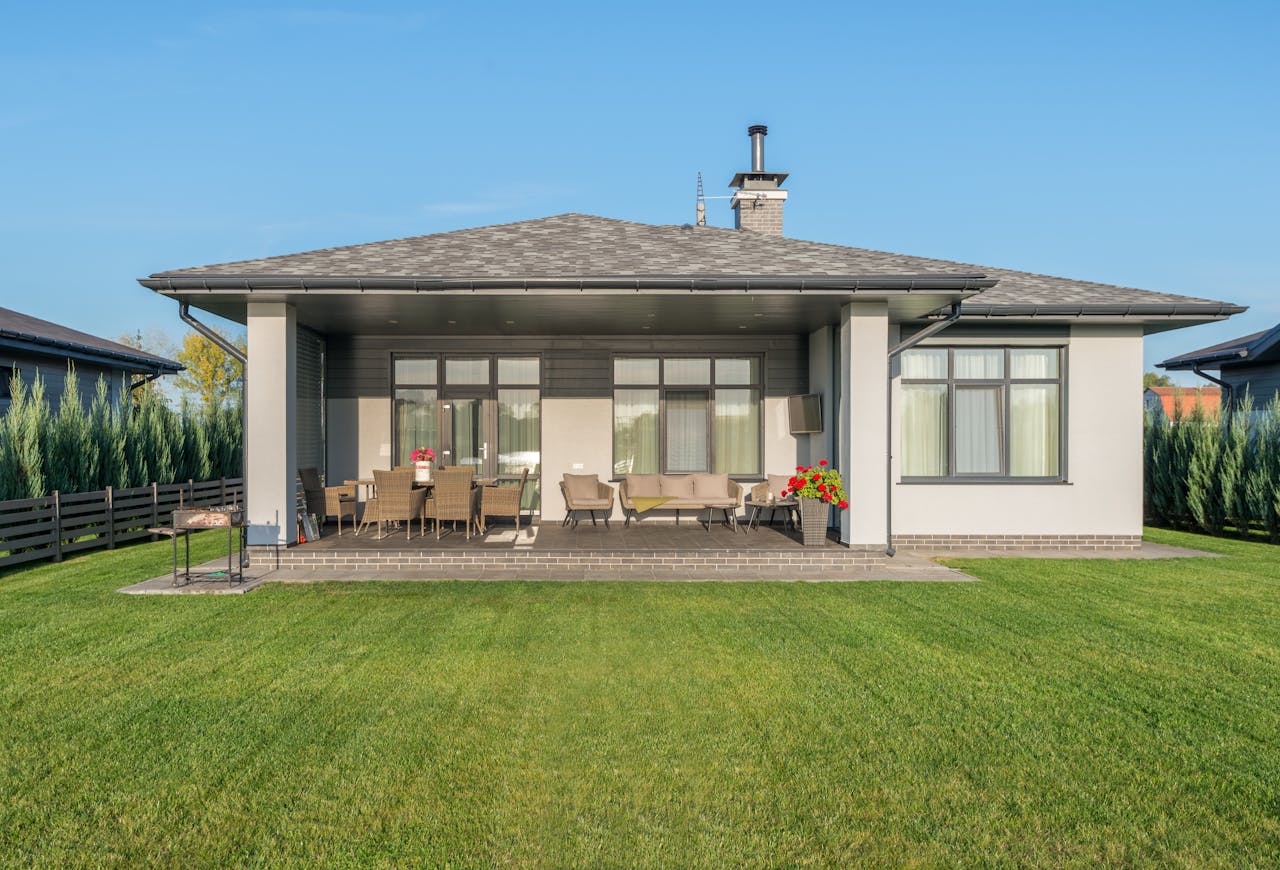What You Should Do Before Even Calling a Real Estate Agent in Toronto

Buying a home in Toronto requires careful planning long before you pick up the phone to contact an agent. The steps you take now will determine how smoothly your purchase goes and how much money you’ll save. With September 2025’s sales-to-new-listings ratio at 29%, buyers have more negotiating power than they’ve had in years. Taking time to prepare puts you in a stronger position to act when you find the right property.
Use Technology to Your Advantage
Real estate technology has changed how buyers prepare for purchases. Instead of driving around neighborhoods or relying solely on basic listing sites, you can access detailed property histories and market analytics from your computer.
Wahi provides buyers with AI-powered property analysis and over 20 years of sold price data. This historical pricing information shows you exactly what similar homes in your target areas have sold for, giving you concrete numbers for negotiations.
The platform shows actual days on market, including properties that were terminated and relisted. Many listing sites reset the counter when a property gets relisted, hiding how long it’s really been available. Wahi displays this information transparently, helping you spot overpriced homes or motivated sellers.
For buyers purchasing with partners, the co-buyer features let both people save properties, share notes, and track preferences together. When you do work with a Wahi Realtor, the platform offers cashback up to 1% on purchases. On a $1.1 million home, that’s $11,000 back after closing.
Start With Your Money Before Your House Hunt
Getting mortgage pre-approval should be your first move. Banks need to see your financial picture before they’ll tell you how much you can borrow. This process takes time, and you’ll need several documents ready. Your lender will want to see pay stubs from the past month, T4 slips and Notice of Assessment from the last two years, and bank statements showing your down payment savings for 90 days.
The numbers matter here. Toronto’s average home price sits at $1,102,972 according to current MLS data. To qualify for a mortgage on a property at this price, your household needs to earn between $179,000 and $212,000 annually. These income requirements change based on your down payment size and any debts you carry. The mortgage stress test adds another hurdle. You’ll need to qualify at your contract rate plus 2% or 5.25%, whichever ends up higher.
Know Your Down Payment Requirements Inside Out
Down payment rules follow a specific structure in Canada. For homes under $500,000, you’ll put down 5% minimum. Properties between $500,000 and $999,999 need 5% on the first half-million, then 10% on the rest. Once you hit the $1 million mark, which covers most Toronto properties now, you need 20% down. On that average $1,102,972 home, you’re looking at $220,594 minimum for your down payment.
First-time buyers can tap into several programs to help with these costs. The Home Buyers’ Plan lets you pull up to $60,000 from your RRSP for your down payment. You’ll repay this over 15 years. Ontario gives first-time buyers a land transfer tax rebate up to $4,000. Toronto adds its own municipal rebate of $4,475. The federal Home Buyers’ Tax Credit puts another $750 in tax savings in your pocket.
Research Neighborhoods Like a Local
Each Toronto neighborhood has its own character and price range. Some areas near subway lines command premium prices, while others offer more space for the same money but require longer commutes. Visit your target neighborhoods at different times. A quiet Saturday morning street might become busy during weekday rush hours. Check commute times during actual work hours, not on weekends when traffic flows differently.
Look at practical details for each area you’re considering. How far is the nearest grocery store? Are there parks nearby if you have kids or pets? What do the local schools offer? These factors affect both your daily life and your property’s future value. School catchment areas particularly matter for families, as top-rated schools can add tens of thousands to home prices in their zones.
Calculate All Your Closing Costs Now
Closing costs catch many buyers off guard. Plan for 3% to 4% of your purchase price going to these expenses. On that $1.1 million average Toronto home, you’ll pay between $33,000 and $44,000 in closing costs. Land transfer taxes make up the biggest chunk. Toronto charges both provincial and municipal land transfer tax, totaling about $38,475 on a $1.1 million purchase before any rebates apply.
Legal fees run between $1,500 and $3,000. Your lawyer handles title searches, document preparation, and the actual closing. Home inspections cost $400 to $700 but can save you from expensive surprises later. Title insurance protects against fraud and title problems for $200 to $400. Some lenders require property appraisals at $300 to $500. Add moving costs and immediate expenses like utility hookups to your budget too.
Understand Market Conditions Before Making Moves
October 2025’s market gives buyers advantages they haven’t seen recently. Active listings reached 29,394 by September’s end, up 15% from last year. Homes now sit on the market for an average of 51 days, compared to 43 days in September 2024. These longer selling times mean sellers have become more flexible on price and conditions.
Year-over-year prices have dropped across property types. The average GTA home price fell 4.3% to $1,059,377 in September 2025. Detached homes dropped 4.5% to $1.36 million on average. Toronto specifically saw average prices at $1,089,918, down 2.1% from September 2024. The average sales-to-listing price ratio hit 98%, meaning buyers typically paid 2% below asking price. These statistics show sellers accepting offers below their initial expectations.
Lock In Your Interest Rate Strategy
Interest rates shape your buying power dramatically. As of October 30, 2025, the lowest high-ratio 5-year fixed rate sits at 3.79%. Variable rates start at 3.45%. The Bank of Canada cut its overnight rate to 2.25% with a 25 basis point reduction, making borrowing cheaper than earlier in the year.
Fixed rates give you payment certainty for the term length. Your monthly payment stays the same regardless of rate changes. Variable rates can save money when rates drop but increase your payments if rates climb. Consider your risk tolerance and financial flexibility when choosing. Some buyers split their mortgage between fixed and variable portions to balance stability and potential savings.
Create Your Property Must-Have List
Write down what you actually need versus what would be nice to have. Must-haves might include minimum bedroom count, parking availability, proximity to your workplace, or accessibility features for family members. Nice-to-haves could include updated kitchens, finished basements, or specific architectural styles.
Be realistic about trade-offs at your price point. You might get that third bedroom by moving farther from downtown. Or you could stay central by accepting an older kitchen that needs updating. Knowing your priorities helps you evaluate properties quickly and avoid wasting time on homes that won’t work.
Time Your Purchase Strategically
Toronto’s real estate follows seasonal patterns. Spring typically brings the most listings but also the most competition. Fall buyers often find motivated sellers who didn’t get their desired price during busier months. Properties listed in November and December frequently come from sellers who need to close before year-end for job relocations or financial reasons.
The current market gives buyers more flexibility on timing than previous years. With inventory up and days on market extended, you don’t need to rush into the first acceptable property. Take time to find something that meets your needs at a fair price.
Organize Your Documentation Package
Having your paperwork ready speeds up the offer process when you find the right home. Sellers and their agents view organized buyers as serious and capable of closing smoothly. Your package should include employment verification letters, recent pay stubs, tax documents, bank statements, your pre-approval letter, and government ID.
Keep both physical and digital copies organized in folders. Email yourself scanned versions so you can access them from anywhere. When you need to submit an offer quickly, having everything ready prevents delays that could cost you the property.
Learn the Offer Process Before You Need It
Understanding offer mechanics helps you act confidently when opportunities arise. Conditional offers let you include inspection, financing, or sale-of-existing-home conditions. Firm offers contain no conditions and typically win in competitive situations if you’re certain about the property and your financing.
Deposit structures vary, but expect to provide 5% of the purchase price within 24 hours of offer acceptance. Closing dates affect negotiation too. Flexible buyers who can accommodate seller timing preferences often get better prices. For condominiums, status certificates reveal the building’s financial health and any special assessments planned.
Moving Forward With Confidence
Completing these preparatory steps transforms you from a casual browser into a ready buyer. You’ll know your budget, understand the market, and have your paperwork prepared. Your research on neighborhoods and property types means you won’t waste time viewing unsuitable homes. When you do contact an agent, you’ll speak from an informed position about what you want and what you can afford.
The current Toronto market offers opportunities for prepared buyers. With the sales-to-new-listings ratio below 40%, negotiating power sits with purchasers. Inventory levels remain elevated, giving you choices. Interest rates have become more favorable following Bank of Canada cuts. By taking these preparation steps seriously, you position yourself to capitalize on these conditions and secure the right property at a fair price.

















